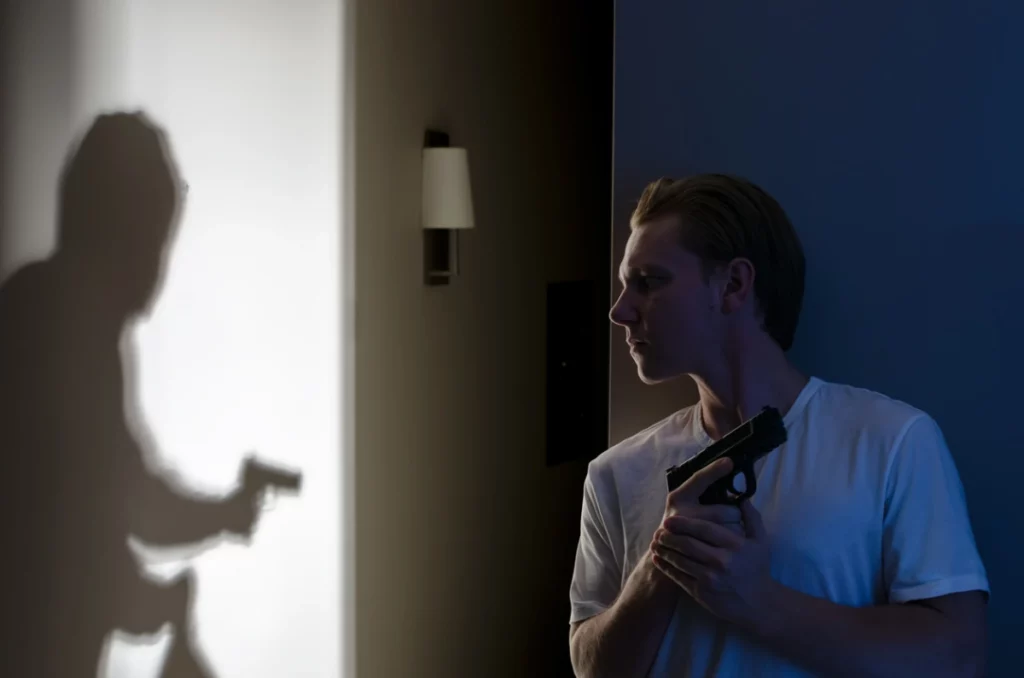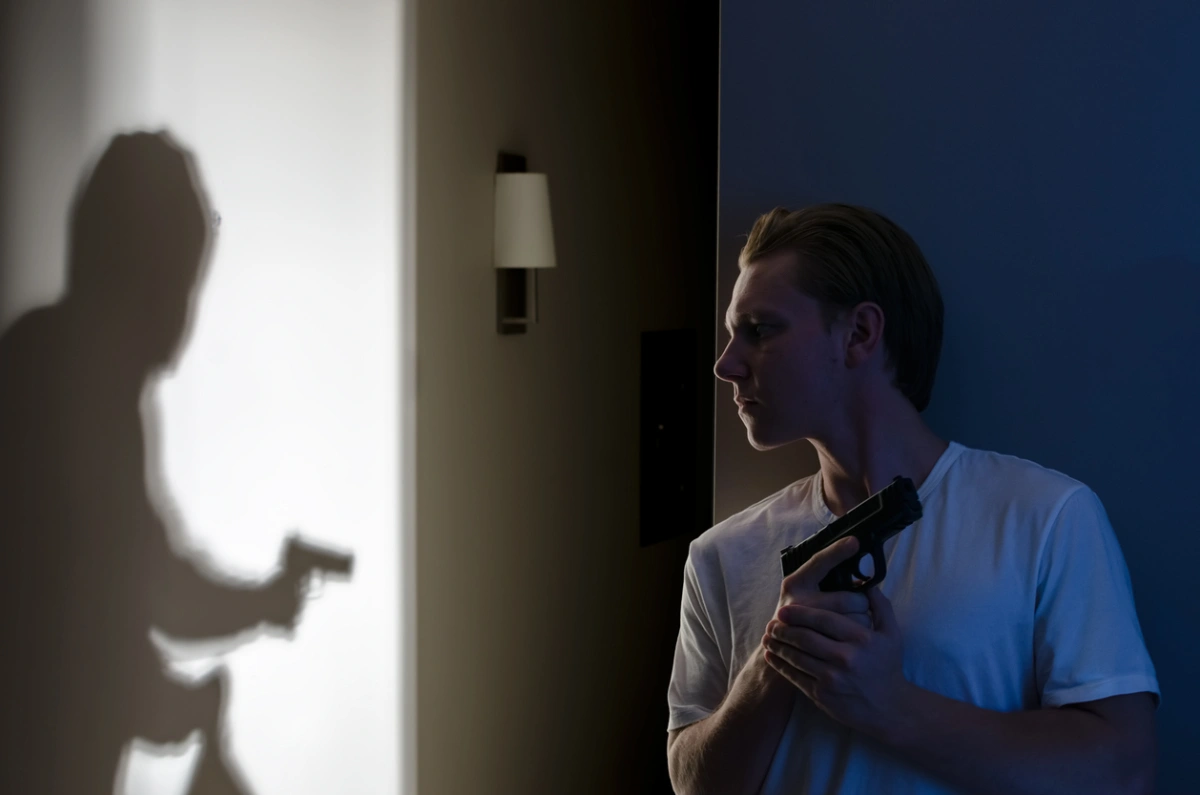
A few moments feel heavier than learning you may face an involuntary manslaughter charge. The allegation means someone lost their life, yet you never meant for that outcome.
At Kostopoulos Law Group, we have spent more than two decades helping Illinois residents in similar situations, and we have seen how fast confusion turns into panic. The following guide provides an overview of the charge, potential penalties, and support options available to you. However, it is for general information only and does not constitute legal advice.
What Involuntary Manslaughter Means in Illinois
Illinois defines involuntary manslaughter as unintentionally causing another person’s death while acting recklessly or with gross negligence. In simpler terms, the law punishes dangerous conduct, even if no one planned to kill. That separates the offense from murder, which involves intent, and from reckless homicide, which usually centers on vehicle-related deaths.
Common fact patterns give the definition of life.
- Speeding far above the limit and striking a pedestrian.
- Pushing someone during a heated scuffle, leading to a fatal fall.
- Leaving a child unattended in unsafe conditions that later prove deadly.
All of these may appear accidental, yet prosecutors can still argue that the behavior ignored clear risks. Illinois Statute 720 ILCS 5/9-3 sets out the formal wording, but the meaning stays the same: the focus is on reckless conduct, not intent to kill.
Criminal Charges and Sentencing Exposure
Most involuntary manslaughter cases start as a Class 3 felony, particularly when involuntary manslaughter occurs under specific conditions. A conviction carries two to five years in state prison and a possible fine of up to $25,000. In particular settings, the charge climbs to a Class 2 felony, raising exposure to three to seven years behind bars. Situations that can trigger the bump include a victim who was a family member or the death that happened while another felony was underway.
The numeric ranges only tell part of the story, so the table below places the main sentencing factors side by side.
| Charge Level | Prison Range | Maximum Fine | Typical Examples |
| Class 3 Felony | 2–5 years | $25,000 | Reckless driving, accidental fight fatality |
| Class 2 Felony | 3–7 years | $25,000 | Death of a family member, fatality during another felony |
| Extended Term * | Up to 14 years | $25,000 | Repeat felony record, multiple victims, listed aggravator |
*Extended terms apply only when prosecutors allege statutory aggravators and the judge agrees.
Time behind bars is not the only worry. A felony record can block jobs, housing, firearm rights, and even professional licenses. That ripple effect often convinces clients to act quickly once charges land.
Developing a Legal Defense Strategy
When facing an involuntary manslaughter charge, a strong defense strategy is crucial. While no two cases are exactly alike, specific approaches are often practical.
One common focus for any attorney is to dispute the claim of recklessness. If the actions in question were careless but did not show a significant disregard for safety, the criminal element of the charge may be weakened. The defense aims to show that the behavior was not a gross deviation from normal conduct.
Legal representatives may also challenge the chain of causation. The prosecution must show a direct link between the accused’s actions and the death. If there were other factors involved, such as medical errors, the victim’s behavior, or equipment malfunctions, this link can become less clear.
Building a record to support these arguments, often with an experienced criminal defense attorney, can involve several steps:
- Accident reconstruction to determine factors like speed, distance, or visibility.
- Toxicology reviews to counter claims of impairment.
- Witness interviews to uncover inconsistencies or gaps in accounts.
The main goal is to create reasonable doubt about whether the conduct was reckless enough to warrant a conviction. Even a small challenge to the prosecution’s theory can lead to reduced charges or a finding of not guilty.
How Legal Counsel Can Assist with the Case
The criminal process moves fast, and every stage presents hazards. A defense team first reviews the evidence for constitutional problems, such as an illegal search or a coerced statement. If officers crossed the line, any tainted proof can be suppressed, sometimes dismantling the prosecution in a single hearing.
Counsel also guides clients through choices that seem small but carry real weight in terms of legal representation. Deciding whether to answer questions, waive speedy-trial rights, or accept a plea all affect the outcome. During negotiations, seasoned involuntary manslaughter attorneys can present mitigating facts and alternative sentencing ideas the state may overlook, ranging from probation with treatment to community service.
Finally, preparation for court appearances reduces surprise. We rehearse direct and cross-examination, explain courtroom etiquette, and line up exhibits so the story flows clearly for the jury.
Advantages of Seasoned Defense Advocates
Experience inside Cook County courtrooms often proves as valuable as a stack of law books. Lawyers who have handled local judges and prosecutors know how certain arguments land and which plea offers fit the district’s unwritten norms. This knowledge allows for sharper strategy and more realistic client advice.
In trial settings, that background helps predict when the state will introduce emotional evidence or call a last-minute witness. Counter-moves can then be planned rather than improvised. When talks resume, familiarity with prior case outcomes lets counsel press for comparable treatment, a concept many prosecutors respect.
Starting with a Legal Case Evaluation
A formal evaluation does more than outline defenses. It locks in critical timelines for filing motions, sends preservation letters for video or phone data, and pinpoints any surveillance footage at risk of deletion. Importantly, the meeting is low-pressure. You describe the facts, we map potential paths, and no one signs anything unless ready.
Early engagement lets investigators visit scenes while skid marks remain, track down reluctant witnesses, and collect digital evidence before accounts vanish, which is crucial in any criminal offense. Waiting even a few weeks can shrink that pool of proof and hand the prosecution an advantage.
Related Offenses and Classification Differences
When a death occurs, prosecutors have several options for filing charges. Involuntary manslaughter is one such charge, but it differs significantly from others. These distinctions are crucial for understanding a case.
Each charge has its legal standards. These standards look at the accused person’s intent, their state of mind, and the specific circumstances surrounding the death.
Understanding how prosecutors decide which charge to bring is a key part of building a defense. The chosen charge directly influences the evidence presented and the arguments made in court.
Here are some related offenses and their main differences:
- Voluntary Manslaughter / Second-Degree Murder: This charge involves causing serious harm or death while acting in the heat of passion. Unlike involuntary manslaughter, there is an intention to cause harm, even if it’s not a premeditated killing.
- Reckless Homicide: This offense is often applied to deadly incidents involving vehicles or watercraft. While it also involves reckless behavior, its focus is specifically on deaths that happen due to the dangerous operation of a vehicle.
- First-Degree Murder: This is the most serious charge. It alleges a clear intent to kill or an extreme indifference to human life. This differs greatly from involuntary manslaughter, where there is no intent to cause death.
Legal representatives can help clarify which specific charge is most appropriate based on the facts of a case, including aspects of criminal negligence. They assist in distinguishing between these classifications, which is vital for developing an effective legal approach.
Is a Manslaughter Charge Inevitable? Defenses Against Involuntary Manslaughter
The short answer is no. Multiple defenses can derail, downgrade, or even dismiss the charge.
- Lack of Recklessness: Show that a reasonable person in the same position would have taken the same action or lacked reason to foresee danger.
- Lawful Justification: Prove self-defense or defense of others prompted the conduct, eliminating criminal blame.
- Insufficient Evidence: Highlight weak forensic links, missing chain of custody, or gaps in witness accounts.
- Mental State: Demonstrate diminished capacity or a qualifying mental illness that prevents the required culpable mindset.
- Accident: Present proof that the event was a genuine mishap without negligence, such as a sudden equipment failure.
Each defense requires tailored proof, yet even one successful argument can change a life sentence to probation or secure outright acquittal.
Charged with Involuntary Manslaughter? Contact Us Today
A felony homicide case is never minor, and we understand the pressure you feel right now. Kostopoulos Law Group draws on more than 20 years of experience in Illinois courts to build an experienced criminal defense that stands up to aggressive prosecution. Call us at 630-283-8024 or visit our Contact Us page to set up a confidential case review. Acting promptly gives us the best chance to safeguard your future and protect your freedom.





